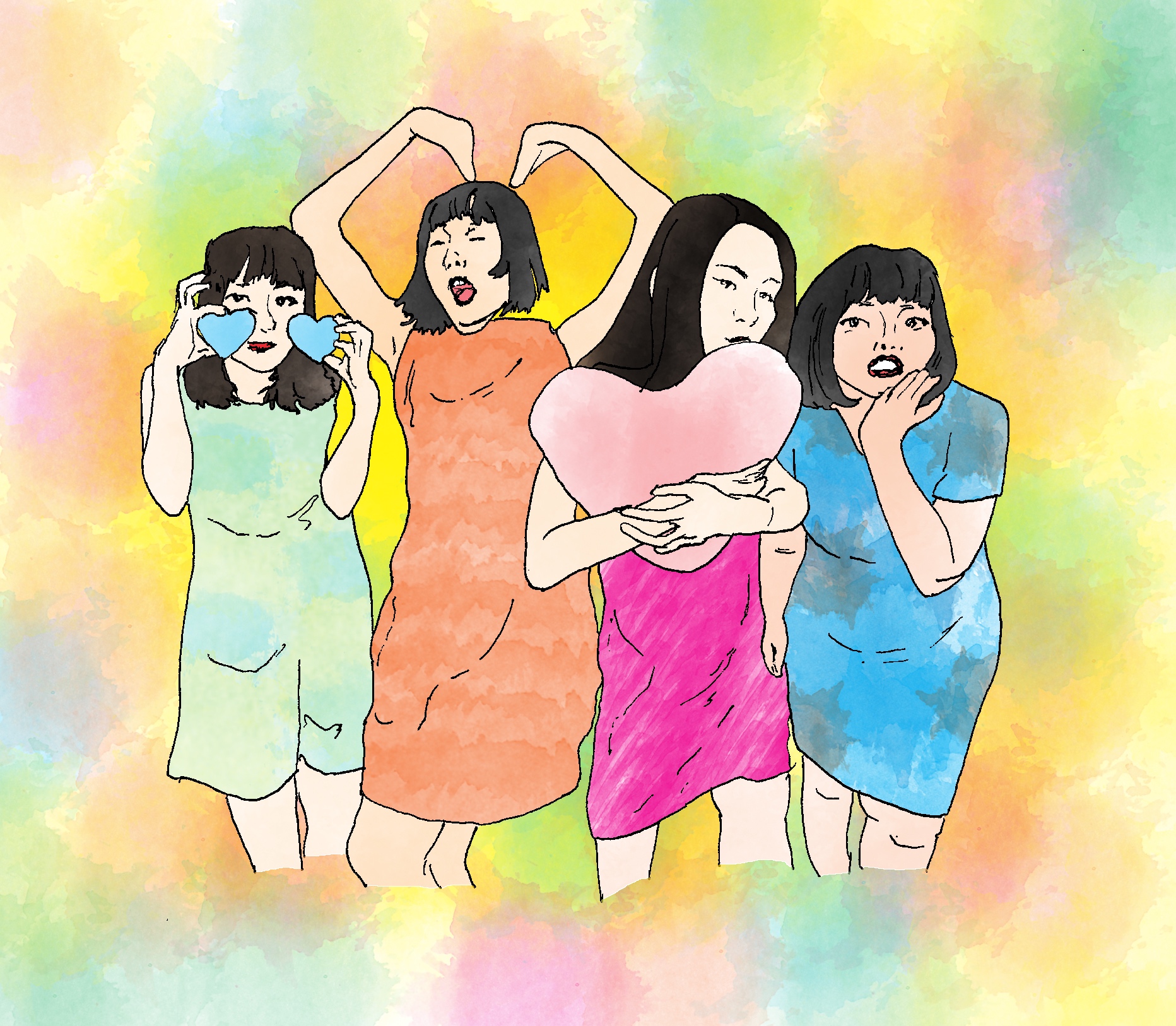Otoboke Beaver challenges notions of feminist expression
April 10, 2020
 Kayla Snyder
Kayla SnyderOtoboke Beaver is an all-female punk quartet from Kyoto, Japan which plays incredibly fast, angular rock music fueled by liberated rage. The original lineup, composed of singer Accorinrin, guitarist Yoyoyoshie, bassist Nishikawachi and drummer Pop formed in 2009 at Ritsumeikan University’s music club.
The group’s name was inspired by a ‘love hotel’ in Osaka, a specialized type of accommodation designed primarily to allow guests privacy for sexual activities.
The band’s music is composed of incredibly calculated bursts of energy and fury, with Accorinrin singing primarily about experiences from her own life regarding everything from romance and overly-entitled men to monotonous office jobs. Her fierce and mind-bendingly fast vocals are bolstered by the other members of the group who often sing behind her in perfect unison.
The band released a demo in 2011 and a live album in 2012 that gained traction in Japan. They began touring internationally in 2016, and played shows at South by Southwest and Coachella. In the years since 2009, their blistering unique style has received praise from well-known Japanese musicians like Emi Morimoto of Shonen Knife as well as international artists like Paul Thomson of Franz Ferdinand and Lars Ulrich of Metallica.
Otoboke Beaver’s 2019 album “Itekoma Hits” is a compilation of older singles combined with new material. It squeezes 14 songs into a mere 26 minutes, averaging less than 90 seconds per song. This intense brevity is a testament to the band’s pointed energy and fury regarding the topics they sing about. This is shown in the hyper-specificity of many song titles which often seem to reference events from Accorinrin’s life.
The first song on the album is “datsu.hikage no onna,” which she opens by singing “I hate you” in English, before returning to the verse in Japanese in which she laments being “a woman in the shadows.” When the English line comes back later in the song, it is sung by all the members, lending to a sense of unification and solidarity. The band members are never afraid to express exactly how they feel, although their assertiveness often grows and explodes over the course of each song. They continue to demonstrate this joyful assertiveness with names of later tracks such as “I’m Tired of Your Repeating Story” and “After Making Love With Me, You Eat Your Wife’s Meal.”
It is important to note that the explosiveness of the band’s lyrics does not overshadow the explosiveness of its instrumental mastery. The musicians rarely ever miss a beat, and even the most cacophonic bursts of noise are still precise, transitioning from melody to chaos and back with ease. One of the most instrumentally impressive songs is “Introduce Me to Your Family,” in which the song changes tempo and style multiple times while maintaining the same nimble and catchy bassline. In “Bad Luck” the band members blend their voices together, speed-talking in such precise unison that it’s hard to tell that it’s actually multiple people.
What ties this album together, amidst the impressive instrumentals and clever wordplay, is the sense of sheer joy and fun that the music evokes. Although their songs often criticize men, members of Otoboke Beaver have stated, “We don’t try to sing about women’s rights or women’s issues in our music.” The root of the band’s energy and anger is not in an abstract political agenda, but reflects upon the direct experiences of its members.
Listening to Otoboke Beaver feels like listening to someone vent their anger and frustration in ways they’ve always been told not to. (While it is not part of this album, I would highly recommend the music video for their most recent single, “Dirty Old Fart is Waiting for My Reaction.”) The album doesn’t try to appeal to specific groups of people, and it doesn’t seek to compromise on anything. Instead, “Itekoma Hits” represents the journey of four people learning how to express their rage as something fun, joyful and absurd.

Comments
Before submitting a comment, please review our comment policy. Some key points from the policy: